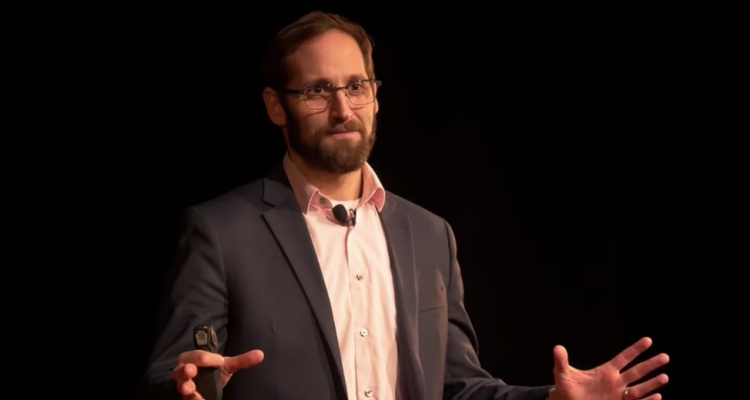Visiting assistant professor of politics, Aaron Weinstein, joined the Fairfield University faculty in 2018 after graduating from Brown University two years prior with a Ph.D. in political science. Weinstein’s journey to becoming a professor at Fairfield was somewhat unexpected, but the Fairfield campus has certainly benefited from his presence. After receiving an email in 2018 from the chair of the politics department asking him to be an adjunct professor, Weinstein shortly became an integral part of the program.
Weinstein notes, “Between the drive from adjuncting to me getting here, which is about two and a half hours, they said, ‘Would you be available to actually be a visiting assistant professor?’ I said ‘absolutely.’”
Professor Weinstein acknowledges that he finds a special connection to the value system on campuses like Fairfield. Ever since visiting his sister and other friends at their Catholic universities, Weinstein has found a calling in Catholic education.
He comments, “there was something about a Catholic college or a Catholic university that I just liked. I liked the community. I liked the closeness. The students are just fantastic. They’re top-notch, but they’re also disciplined in a way that I find hasn’t always been as crystal clear at other places where I’ve both been a student and sometimes where I’ve taught.”
You can find Professor Weinstein teaching courses like “U.S. Congress,” or, “The American Presidency,” but Weinstein is profoundly influenced by his dissertation on the American civil religion. Ever since a college course he took called “Evangelicals in American Culture,” and a thesis during senior year on the neo-conservative movement, Weinstein has been drawn to the topic.
Weinstein describes the concept as “a way to understand American nationalism, where the United States doesn’t just have a ‘base nationalism.’” There is this idea that you can criticize the state, but you can understand the nation’s role in the world if you revert and reference this generic God. It’s not a specific God. It is just this generic belief in belief.”
In this context, civil religion is composed of various symbols and beliefs that unite Americans. While usually studied in sociological terms, Weinstein associates the concept with political thought, specifically as it relates to liberal groups with a mixture of sacred and secular politics. Weinstein just published a piece in “New Political Science” on finding a civil religion within the Occupy Wall Street movement. Professor Weinstein’s current projects include a book regarding liberal civil religions, and another focusing on conservative political thought using an edited volume of pamphlets from the 1930s. Professor Weinstein’s research also plays out in the classroom.
He notes, “When I teach, for instance, ‘The Presidency,’ there is a tendency to focus on the history of it, on the institution and how it relates to Congress or the judicial branch. I devote at least one entire class, and often I’ll go back to it several times, talking about the symbolic presidency, which touches more on this idea of civil religion.”
Although students may find themselves initially intimidated by the concept of civil religion, Weinstein is quick to remind us that it’s much easier to understand than you might think.
“Civil religion, because everyone really can feel it without having to know it and how it works, you just sort of understand, almost like how you understand grammar without being taught the rules of grammar,” he says. “You understand how civil religion affects your life, and so it makes the class, makes the content, a little bit more immediately recognizable.”
As Stags are home during the COVID-19 outbreak, this is a unique opportunity to broaden our horizons, explore new subjects and remain intellectually curious. In between your Zoom classes, grab a cup of coffee or, if you’re like me, hot chocolate (with marshmallows, of course), and read a few of Professor Weinstein’s suggested books, including “Hellfire Nation” by James Morone, “As A City On a Hill” by Daniel T. Rogers and “The Myth of American Religious Freedom” by David Sehat. Who knows? You might find yourself wanting to learn a bit more about politics, and luckily, Fairfield has just the right classes to help you do that.
As Weinstein acknowledges, “Politics is not this special category of knowledge that some people have, and some people don’t because you’ve been doing it for the past 18, 19, 20 or maybe more years, depending on how old you are. Politics is not a spectator sport, but at least when you’re getting into it it’s okay to be a ‘fly on the wall’ and just listen.”


Leave a Reply